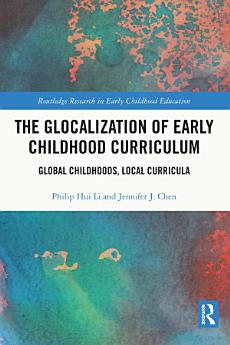The Glocalization of Early Childhood Curriculum: Global Childhoods, Local Curricula
About this ebook
Analyzing globally advocated early childhood curricula and ideologies, such as the developmentally appropriate practice, the child-centered approach, constructivism, and globalized childhood, this book argues that the direct adoption of these contextually bound approaches in local environments may be inappropriate if social and cultural compatibility is lacking. The authors then examine how early childhood curricula may be implemented in a hybrid form. Featuring case studies from American and Chinese contexts, this book offers insights and recommendations for the future development and redeployment of early childhood curriculum studies and practices in a post-truth era.
This volume serves as a valuable resource for scholars and students of early childhood education and comparative education, as well as for key education stakeholders.
About the author
Philip Hui Li, Ph.D., is the Dean and Chair Professor of Shanghai Institute of Early Childhood Education, Shanghai Normal University. He is also an Honorary Professor of Macquarie University, Australia.
Jennifer J. Chen, Ed.D., is professor of early childhood and family studies at Kean University in New Jersey, USA. She earned her doctorate in human development and psychology from Harvard University Graduate School of Education.




